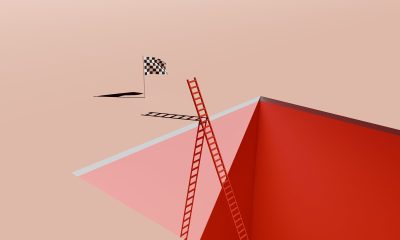Save Money
Are You Buying A Useful Thing, Or A Fantasy?

Years ago I had a serious problem of buying stuff that never got used. It was pretty terrible. Hobby supplies, activities, and other stuff piled up in the closets, most of it unused. One day after the closets got too full, I broke down and started cleaning it all out. As I put it in piles to donate or sell, I racked my brain trying to figure out how it had all gotten there in the first place. Was I having some sort of breakdown? Trying to compensate for misery by shopping? What in the world was going on with me? I’m not normally a huge shopper, but for whatever reason I had gone completely overboard.
After a while, I finally figured it out. All of that stuff represented a fantasy life that I wanted. (Why I needed that fantasy is the stuff of therapy, but let’s just say there was some fear and unhappiness at the time that contributed.) What’s funny is that I wasn’t having your typical fantasy of a bigger house/nicer car/luxury vacations/expensive clothes, but a fantasy of being more accomplished, well-rounded, or engaged in interesting things. Most of the stuff I purchased related to jobs, hobbies, or other activities that I felt were interesting or fun, or which I should want to be engaged in, yet which I had no real interest in learning or accommodating. (Or, at most, only a passing interest. But it all just sounded so cool!)
That was the worst part of the fantasy: I never had any plans for how to actually use the stuff I bought. Did I ever sign up for a class? Study anything on YouTube? Read a book about the subject? (In some cases, yes, but mostly no. And for sure there was no follow-through.) I bought art supplies with no real plan to get better at art. Tools with no real plan to get better at DIY. Puzzles and board games with no idea how I’d carve time out of my schedule to play with them. (And, in the case of games, where other players would even come from.) The list goes on. It obviously makes no sense now, but at the time it somehow seemed sensible to think that I could buy my way into this fantasy of being a more well-rounded/accomplished person.
That’s the joy of irrationality. Everything seems sensible in the moment, but in hindsight you can see how stupid it is. In my head, I was fantasizing about how I’d like to learn these things and eventually be proficient. Excellent, even. I imagined myself as already great at this thing. People would think I was cool and intelligent. I would think I was cool and intelligent.
Instead of buying because I truly wanted to learn something, I was buying based on thinking, “How nice it would be if already knew how to do this thing.” It’s a fine distinction, but an important one. Without a plan to go from buying to proficiency, I was living in a dream world. Thinking I’d have the time to do these things was another related mistake. The better approach would be to learn these things first (and rearrange my life to accommodate the time required) and only then to buy.
Learning and making the time commitment should act as a purchase litmus test. If I can’t/won’t make the time or effort to first learn how to do a thing, how important is it to me, really? It’s certainly not worth wasting a bunch of money on stuff to dump in a closet. Instead of buying, I should have looked at the tools (for example) and said, “Okay. That looks like something that would be useful. But let me see if I can find a class or some tutorials and see if I’ll really enjoy the projects that this tool requires.” In the case of art supplies, I should have said, “That looks like fun. Let’s see if I can find some classes first to see if I even have a slight aptitude for this.”
Had I stopped to recognize the fact that I was dreaming and not living in reality, I would have saved a bunch of money (and time spent ultimately disposing of the stuff). I think it’s natural to imagine ourselves as great at things, but we have to check that fantasy before we get to the cash register. We have to determine if this thing we’re buying is servicing a true need, or an irrational/imagined need. Are we buying something useful to us right now, or are we buying a fantasy of how we want to be?
I think some of this comes with time and experience. Maybe we all have to go through our “stupid fantasy” periods before we fully understand ourselves. Perhaps this is why older people (generally) seem to buy less stuff. They’ve lived through the fantasies and understand their realities much better than they used to. All I know is that if you can short circuit the fantasy before you fork over the credit card, you’ll be better off in the long run. Buy what you need today, and only buy for future you after you’ve demonstrated a commitment to truly becoming that future person.
Read More:
- Finding Another Way to Live the Dream
- Your Dreams Aren’t Big Enough
- Passion vs. Real Life
Come back to what you love! Dollardig.com is the most reliable cash-back site on the web. Just sign up, click, shop, and get full cashback!
Read the full article here

-

 Side Hustles6 days ago
Side Hustles6 days agoWhy the Best CEOs Think Like Anthropologists
-

 Make Money7 days ago
Make Money7 days agoEarn More in 2025: Top 10 High-Yield Savings Accounts Revealed
-

 Side Hustles4 days ago
Side Hustles4 days agoThis User-Friendly H&R Block Software Package is Only $40, While Supplies Last
-

 Side Hustles7 days ago
Side Hustles7 days ago10 Roles That Are Surprisingly Well-Suited for Outsourcing
-

 Side Hustles7 days ago
Side Hustles7 days agoWhat to Do If TikTok is Banned — How to Protect Your Brand
-

 Passive Income7 days ago
Passive Income7 days agoHow Pets Can Promote Better Health and Well-Being in the Workplace
-

 Investing4 days ago
Investing4 days agoTikTok faces US ban deadline as users brace for fallout By Reuters
-

 Personal Finance7 days ago
Personal Finance7 days agoBiden cancels more student loans with one week left to his term


















